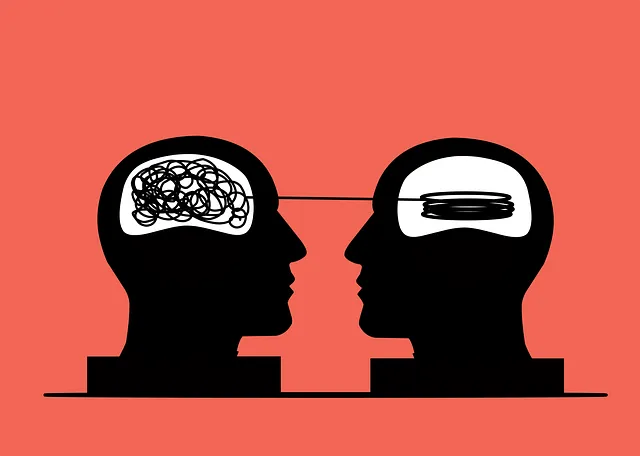Cultural competence is key to improving mental healthcare at Kaiser Permanente behavioral health services in Parker. By prioritizing diverse cultural backgrounds, they offer personalized care through programs like Stress Management Workshops and Mental Health Policy Advocacy, empowering patients, families, and communities. The Parker Method, integrating Conflict Resolution Techniques and historical awareness, enhances cultural awareness among healthcare professionals, reducing stigma and improving patient outcomes. Effective cross-cultural communication, including mental wellness journaling, risk management planning, and training, fosters trust and open dialogue, ultimately promoting mental wellness in diverse communities served by Kaiser Permanente behavioral health services Parker.
In an increasingly diverse world, cultural sensitivity in mental healthcare is paramount. Understanding cultural competence goes beyond basic awareness; it involves actively adapting practices to respect and accommodate varied beliefs and backgrounds. This article explores key components of cultural sensitivity in mental healthcare, drawing from innovative models like Kaiser Permanente Behavioral Health Services and the Parker Method. We’ll delve into strategies for effective cross-cultural communication, highlighting best practices that can transform therapeutic experiences.
- Understanding Cultural Competence in Mental Healthcare
- Kaiser Permanente Behavioral Health Services: A Model for Cultural Sensitivity
- The Parker Method: Enhancing Cultural Awareness in Practice
- Strategies for Effective Cross-Cultural Communication in Therapy
Understanding Cultural Competence in Mental Healthcare

Cultural competence in mental healthcare is a critical aspect that cannot be overlooked, especially within renowned healthcare organizations like Kaiser Permanente. The behavioral health services offered by Parker, for instance, must be sensitive to the diverse cultural backgrounds and beliefs of their clientele. This involves understanding and respecting different values, customs, and communication styles that shape individuals’ experiences with mental illness and healing processes.
The integration of cultural sensitivity fosters a more inclusive environment, empowering clients to share their unique perspectives and engage in personalized treatment plans. It also encourages the development of inner strength and emotional intelligence among both healthcare providers and recipients. By embracing these principles, Kaiser Permanente behavioral health services can ensure that Parker residents receive culturally responsive care, ultimately enhancing the effectiveness and accessibility of mental healthcare.
Kaiser Permanente Behavioral Health Services: A Model for Cultural Sensitivity

Kaiser Permanente Behavioral Health Services stands as a beacon of cultural sensitivity within the mental healthcare landscape. This organization prioritizes understanding and respecting diverse cultural backgrounds, traditions, and beliefs among its patient population. By integrating this approach into their service delivery model, Kaiser Permanente ensures that care is personalized to meet individual needs, fostering trust and improving outcomes.
The Parker-based Behavioral Health Services offers a comprehensive array of programs, including Stress Management Workshops Organization, Mental Health Policy Analysis and Advocacy, and other initiatives aimed at promoting cultural sensitivity in mental healthcare practice. Through these efforts, they empower patients, families, and communities to navigate the complexities of mental health while embracing their unique identities.
The Parker Method: Enhancing Cultural Awareness in Practice

The Parker Method offers a unique approach to enhancing cultural awareness and sensitivity in mental healthcare practices, particularly within institutions like Kaiser Permanente behavioral health services. This method focuses on empowering healthcare providers with essential tools to navigate complex cultural dynamics effectively. By integrating Conflict Resolution Techniques, the Parker Method equips professionals with strategies to manage differences and create more inclusive environments. It emphasizes understanding cultural nuances, promoting empathy, and fostering open communication, which are pivotal in reducing the Mental Illness Stigma Reduction Efforts.
This training goes beyond surface-level awareness by delving into the historical and systemic factors that influence diverse communities’ mental health experiences. Through interactive workshops and role-play scenarios, healthcare providers gain proficiency in adapting their approaches to meet the unique needs of each patient. The Parker Method’s emphasis on continuous learning ensures that professionals stay culturally competent, thereby improving patient outcomes and fostering stronger, more supportive healthcare environments.
Strategies for Effective Cross-Cultural Communication in Therapy

Effective cross-cultural communication is a cornerstone of successful therapy, especially in diverse communities like those served by Kaiser Permanente behavioral health services Parker. Mental wellness journaling and exercise guidance can be valuable tools to bridge cultural gaps. By encouraging clients to express their thoughts and feelings through writing, therapists facilitate open dialogue and create a safe space for discussing sensitive topics. This practice respects the client’s cultural background and promotes active engagement in therapy.
Furthermore, risk management planning for mental health professionals is crucial when navigating cross-cultural interactions. Understanding cultural norms and values, along with being aware of one’s own biases, helps build trust and ensures respectful communication. Building confidence through training and education enables therapists to adapt their guidance based on individual needs, fostering a supportive environment that enhances mental wellness.
In conclusion, cultural sensitivity is an indispensable aspect of mental healthcare practice. As evidenced by Kaiser Permanente Behavioral Health Services and the Parker Method, implementing model programs and evidence-based techniques like those discussed can greatly enhance therapeutic outcomes for diverse patient populations. By fostering cultural awareness and adopting effective cross-cultural communication strategies, mental health professionals can create inclusive environments that respect and value individual differences, ultimately improving access to quality care for all.






